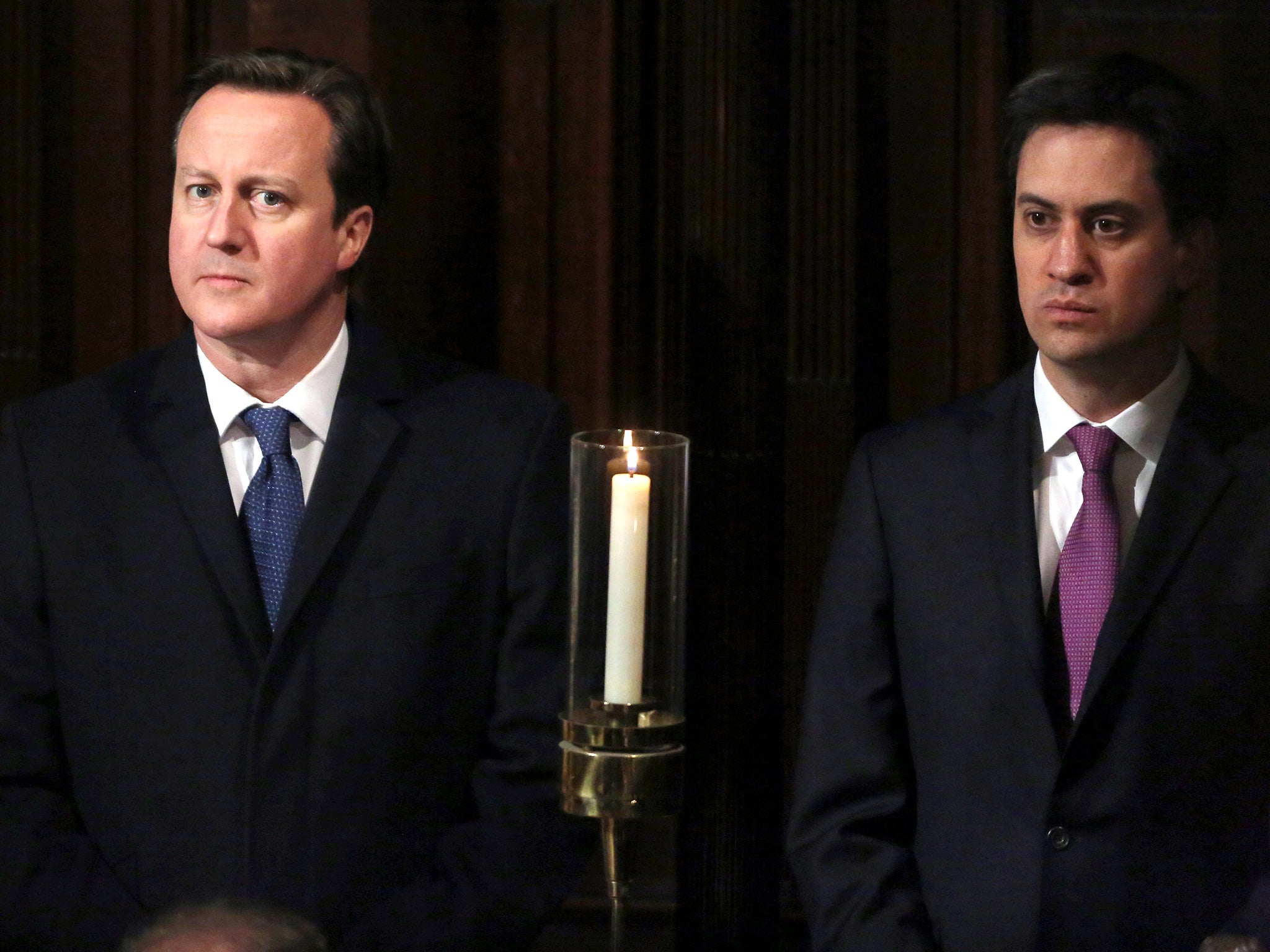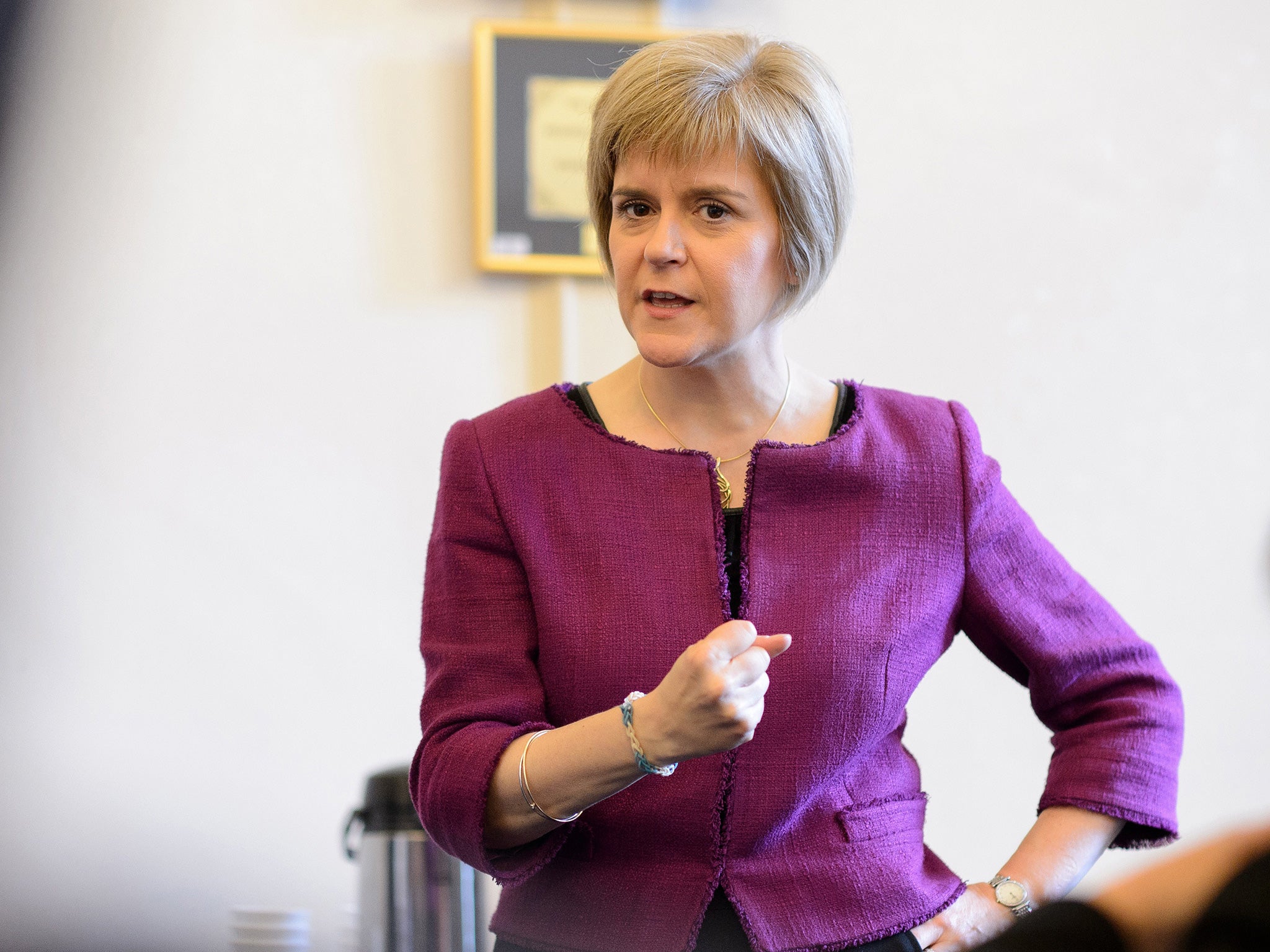Election 2015: Former Tory chairman Lord Baker calls for coalition with Labour 'to keep the UK together' if SNP holds balance of power
Lord Baker argues a Government of national unity ‘might be only way to keep UK together’ if SNP holds balance of power

A Tory-Labour coalition government should be formed in the event of a hung parliament to stop Scottish Nationalist MPs provoking a constitutional crisis, a former Conservative chairman argues today.
The proposal by Lord Baker of Dorking – formerly Kenneth Baker, Margaret Thatcher’s Education Secretary – to create the first national government since the Second World War, reflects growing alarm in Tory and Labour ranks over the prospect of dozens of seats falling to the SNP, leading to paralysis at Westminster.
Ed Miliband, the Labour leader, is facing internal pressure to rule out a deal with Nicola Sturgeon’s party if it holds the balance of power after 7 May.
The idea of a grand coalition between the two old enemies may repel supporters of both parties, but Lord Baker argues it is the only way to ensure the “continuing unity” of the United Kingdom. Writing in The Independent, he says a minority Labour government could face the “nightmare” of depending on SNP votes to get English legislation on to the statute book – which would “stretch the constitution of our country to breaking point”.
Lord Baker argues: “What is at risk is the continuing unity of the United Kingdom. In order to preserve that unity another way should be found. This could be a joint government of the Labour and Conservative parties: quite unthinkable at the moment, and at this time likely to be rejected by both of them – but this is what has happened in Germany.
“The prime minister would be the party leader with the most seats – at the moment it looks like David Cameron but it could be Ed Miliband – and both parties would have cabinet seats. Such a coalition should only last two years, which means that the fixed five-year-term Parliament Act would be repealed, leading to a general election in 2017.”
According to some polls, the SNP could win more than 50 seats in Scotland, the vast majority of which are currently held by Labour.
Speaking in Edinburgh today, Mr Miliband will acknowledge the threat with a warning that every SNP vote will increase the likelihood of Mr Cameron securing a second term in office.
Lord Baker argues that the post-election risks to the stability of the UK are so great that the Tories and Labour should bury their differences.
“It would be possible to find areas of agreement – defence, counter-terrorism, infrastructure investment in schools, road, rail and in the reform of skills training and energy,” he writes.

“The more controversial manifesto promises would have to be forgone but not abandoned; David Cameron may have to wait until 2018 for the European referendum and Ed Miliband for 2018 for the mansion tax.”
He says a constitutional convention should then be established, encompassing England, Scotland, Wales and Northern Ireland, with the aim of “preserving the United Kingdom” through the “orderly, fair, consistent and coherent” delivery of devolution to the UK’s four nations.
Last night, his call for a national government was flatly rejected by both Labour and the Conservatives. A senior Labour spokesman said the party would “never, ever contemplate a coalition with the Tories”, while his Tory counterpart said: “We wouldn’t endorse that idea at all.”
The senior Labour MP Gisela Stuart has also said her party should consider a link-up with the Tories.
“If on 8 May you had a position where Labour had more seats than the Tories but not enough to form a government – but the Tories had more votes than Labour – I think you should not dismiss the possibility of a grand coalition in terms of regrouping of the main [parties],” she told the Financial Times.
Vince Cable, the Liberal Democrat Business Secretary, recently urged his party to be ready for Mr Cameron and Mr Miliband deciding to work together after the election. He said: “We may have to prepare ourselves for the possibility that we won’t be in the coalition at all, that there will be a grand coalition between Labour and the Tories instead.”

To the irritation of some of his MPs, Mr Miliband has failed to rule out some form of post-election accommodation with the SNP short of a formal coalition. Sir John Major, the former Tory Prime Minister, has also challenged Mr Miliband to “summon the courage” to reject a collaboration with the SNP.
The SNP has hinted that it would be prepared to disregard its usual practice of abstaining on English-only matters if Labour were the largest party in a hung parliament.
Mr Miliband will today tell the Scottish Labour conference that if Mr Cameron is returned to Downing Street on the back of Labour losses to the SNP, it will mean cuts to spending north of the border over the next five years.
“The differences at this election are the widest they have been for a generation, but at the same time this election is set to be the closest for a generation,” he will say.
“I have to tell you – every vote cast for another party, including the SNP, makes that prospect of a Tory government more likely.”
Ms Sturgeon yesterday suggested her party was more likely to support a minority Labour administration on a vote-by-vote basis than to enter a formal coalition. But she indicated that the SNP would not demand a promise to scrap plans for renewal of the Trident nuclear deterrent from Mr Miliband as a price of propping up Labour on other issues.
Join our commenting forum
Join thought-provoking conversations, follow other Independent readers and see their replies
Comments